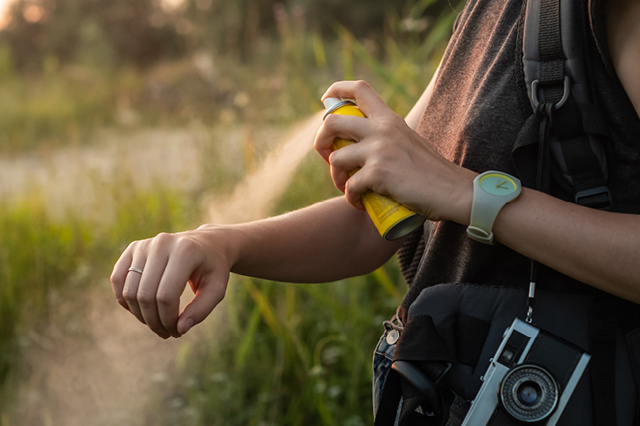It only takes a tiny bug to spoil a wonderful trip – and possibly cause lifelong health problems. Here are a few types of infections you should work to prevent while traveling.
Insect-borne infections: Malaria, Zika virus, West Nile virus and dengue are transmitted via mosquito bites. Malaria is mainly found in sub-Saharan Africa and South Asia. Zika is mainly transmitted in parts of Africa, Asia, the Caribbean, Central and South America and Mexico. Cases of West Nile virus have been reported throughout the continental U.S., and dengue is the leading cause of illness and death in the tropics and subtropics. Lyme disease and Rocky Mountain spotted fever are among those transmitted by ticks – in the U.S. and abroad.
To protect yourself against insect bites, use an insect repellant containing DEET or picaridin on all exposed skin, wear long-sleeve shirts and long pants – especially at dusk – and sleep only in screened areas. If you are traveling to an area where malaria is prevalent, you’ll also need to take preventive medication.
Food- and waterborne infections: Norovirus, salmonella, E. coli and Campylobacter can all lurk in food that is undercooked or has been contaminated during preparation, or from contaminated water. On the water front, tap water, fresh-squeezed juice, ice and fountain drinks can be risky in certain parts of the world.
Cook it, boil it, peel it or forget it is a basic guideline for safer eating, and bottled water is recommended in many parts of the world. The excellent “Can I Eat This?” app from the Centers for Disease Control and Prevention lets you search by country, source and type of food or drink to guide you to a safe meal.
Airborne infections: In transit and when you arrive, your travel will bring you into contact with lots of new people. That means you could also be exposed to many different types of infections.
A good pre-travel practice is to see your doctor for any vaccines you might need at least six weeks before your trip. These could include a flu shot or Tdap booster, or a vaccine against a disease that’s prevalent where you’re headed, such as hepatitis, typhoid or yellow fever. You should also take practical steps such as washing your hands frequently and keeping your distance from people who are ill.
You can also visit www.cdc.gov/travel for a wealth of additional information that will keep you healthy wherever you roam.













